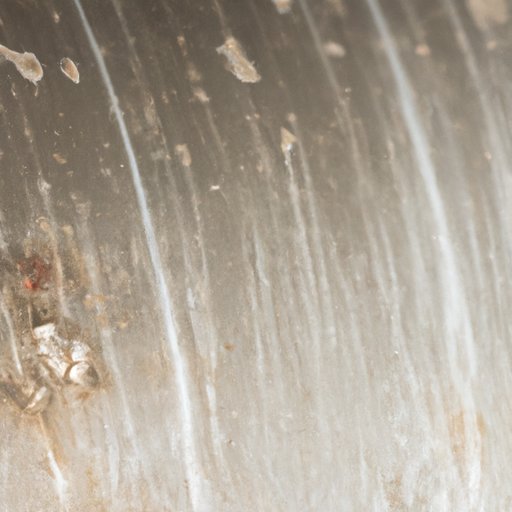
Introduction
Have you ever heard someone say that if you get cut by rusty metal, you’ll contract tetanus? This common belief has led many to fear rust as a potential source of serious infection. In this article, we’ll explore whether rust really poses a threat for tetanus and what steps you can take to protect yourself.
Myths and Truths: Debunking the Rust-Tetanus Connection
There are many myths surrounding the idea of tetanus and rust. For example, some people believe that rusty nails and other sharp objects are the only source of tetanus. However, this is not the case. It’s actually the bacteria that cause tetanus, not the rust itself, that poses a danger.
It’s also important to note that not all rust contains the bacteria that cause tetanus. In fact, the risk of tetanus is more related to the environment in which the rust is found. For example, rusty nails that have been stuck in soil or manure are more likely to carry the bacteria than rust on a bicycle handlebar.
Rust and Tetanus: The Relationship Explained
Tetanus is caused by a bacterium called Clostridium tetani, which produces a toxin that affects the nervous system. The bacteria are commonly found in soil, manure, and other environments where organic matter is present.
Rust itself doesn’t cause tetanus, but it can provide a suitable environment for the bacteria to thrive. When rust is found in the same environment as the tetanus bacteria, it can be a potential source of infection.
Is Rust Really a Threat for Tetanus? Find out Here
While rust can potentially be a source of tetanus infection, the risk is actually quite low. According to the Centers for Disease Control and Prevention (CDC), less than 30 cases of tetanus are reported in the United States each year.
It’s also important to note that tetanus can be contracted from sources other than rusty metal. For example, contaminated soil or manure can also carry the bacteria that cause tetanus. In addition, puncture wounds from animal bites or other objects can also be a source of the bacteria.
Stop Fearing Rust-Induced Tetanus: The Facts You Need to Know
While the risk of tetanus from rust is low, it’s important to take steps to protect yourself from infection. The most effective way to prevent tetanus is to get vaccinated. The CDC recommends that adults receive a tetanus booster shot every 10 years.
If you do get a cut or wound, be sure to clean it thoroughly and apply first aid as necessary. If the wound is deep or dirty, seek medical attention to ensure that the wound is properly cleaned and to determine whether a tetanus shot is necessary.
Rust and Infections: Unveiling the Reality Behind Tetanus
In addition to tetanus, rust and similar materials can also be a source of other infections. For example, tetanus and other infections can occur if a person is exposed to rusty metal that has been contaminated with fecal matter.
Other symptoms that can arise from these infections include fever, joint pain, and gastrointestinal issues. If you experience any of these symptoms after being exposed to rust or other potentially contaminated materials, seek medical attention immediately.
Do You Really Need a Tetanus Shot After Exposure to Rust? Let’s Find Out
If you’ve been exposed to rust or other potentially contaminated materials, you may be wondering whether you need a tetanus shot. The answer depends on several factors, including the severity of the wound and your vaccination history.
If it has been more than 10 years since your last tetanus booster shot, or if you’re not sure when you received your last shot, it’s a good idea to get a booster shot. In addition, if the wound is deep or dirty, or if it’s been more than 5 years since your last booster shot, a tetanus shot may be necessary.
Conclusion
While the connection between rust and tetanus is often misunderstood, it’s important to take steps to protect yourself from infection. The good news is that getting vaccinated and practicing good wound care can help prevent tetanus and other infections.
If you’re ever exposed to rust or other potentially contaminated materials, be sure to seek medical attention if you experience any symptoms of infection. By staying informed and taking the necessary precautions, you can stay healthy and safe.




